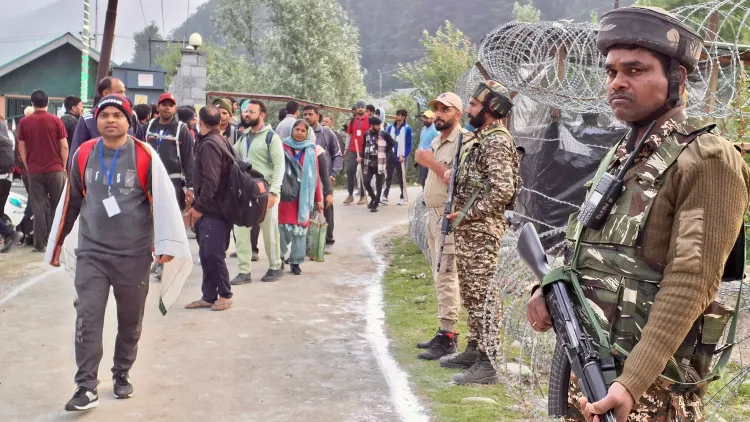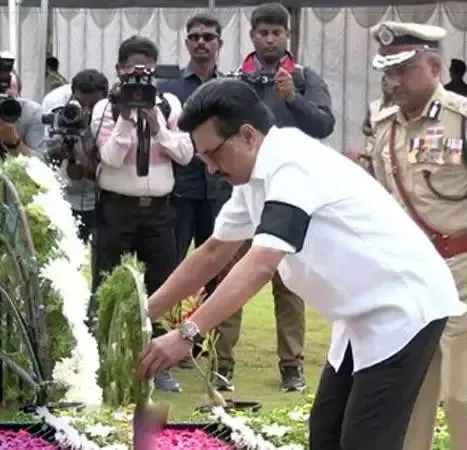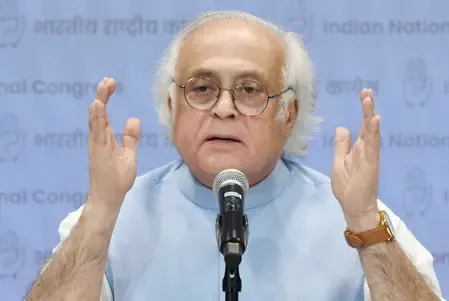How is Punjab Police Ensuring Safety for Amarnath Yatra?

Synopsis
Key Takeaways
- Comprehensive security plan ensures safety for pilgrims.
- Advanced surveillance being utilized for monitoring.
- Strategic deployment of forces enhances preparedness.
- Continuous coordination among security agencies.
- Pathankot's location necessitates increased vigilance.
Chandigarh, June 25 (NationPress) In a bid to guarantee a secure and seamless experience for Shri Amarnath Yatra, the Punjab Police announced on Wednesday that they have launched a detailed, multi-layered, and inter-agency security and coordination strategy. This includes the use of advanced surveillance, strategic deployment of forces, and continuous coordination to safeguard pilgrims.
Special Director General of Police (Law and Order) Arpit Shukla stated that a review meeting took place in Pathankot, focusing on vital preparations for the ongoing Amarnath Yatra. This encompasses various elements such as police deployment, security protocols, traffic management, and disaster response.
He highlighted the importance of increased vigilance due to Pathankot’s strategic placement, which shares a 26.38 km international border with Pakistan and is home to significant defence installations.
The Amarnath Yatra is set to begin on July 3 and will last until August 9.
This annual pilgrimage attracts thousands of devotees, many of whom pass through Punjab, particularly in the Pathankot district, en route to the sacred cave shrine located in Jammu and Kashmir.
The Special DGP chaired a high-level meeting with police, the Indian Army, civil administration, and other security entities to evaluate and enhance security measures.
He mentioned that security levels have been heightened with a commandant-level officer appointed to oversee all routes leading to Jammu and Kashmir.
The yatra path has been divided into specific security sectors managed by Commandant-rank officers, ensuring continuous ground-level monitoring and quick response capabilities in emergencies.
A 24x7 Command and Control Centre has been set up in Madhopur, overseen by a gazetted officer, to track all vehicle and pilgrim movements using state-of-the-art surveillance technology.
The Special DGP indicated that daily anti-sabotage and security inspections are being conducted at sensitive sites, including railway stations, bus stands, langar (community kitchen) locations, religious sites, and throughout the entire yatra route, to identify and prevent any potential threats.









